 5 Common Health Myths Your Doctor Lied to You About!
5 Common Health Myths Your Doctor Lied to You About!
Is sunshine bad for you? Is breakfast the most important meal of the day? Is eating a diet high in cholesterol and saturated fat bad for your health? Is salt bad for you? Is a high-protein diet bad for your kidneys?
The answer to all these questions is: no. These are all common health myths that most people believe — including medical doctors and health professionals. It’s time to debunk this myth and learn how to take care of our health.
In this article, I will discuss why health myths persist. I will also go over the 5 common health myths, debunk them, and share what to do instead. Let’s get into it.
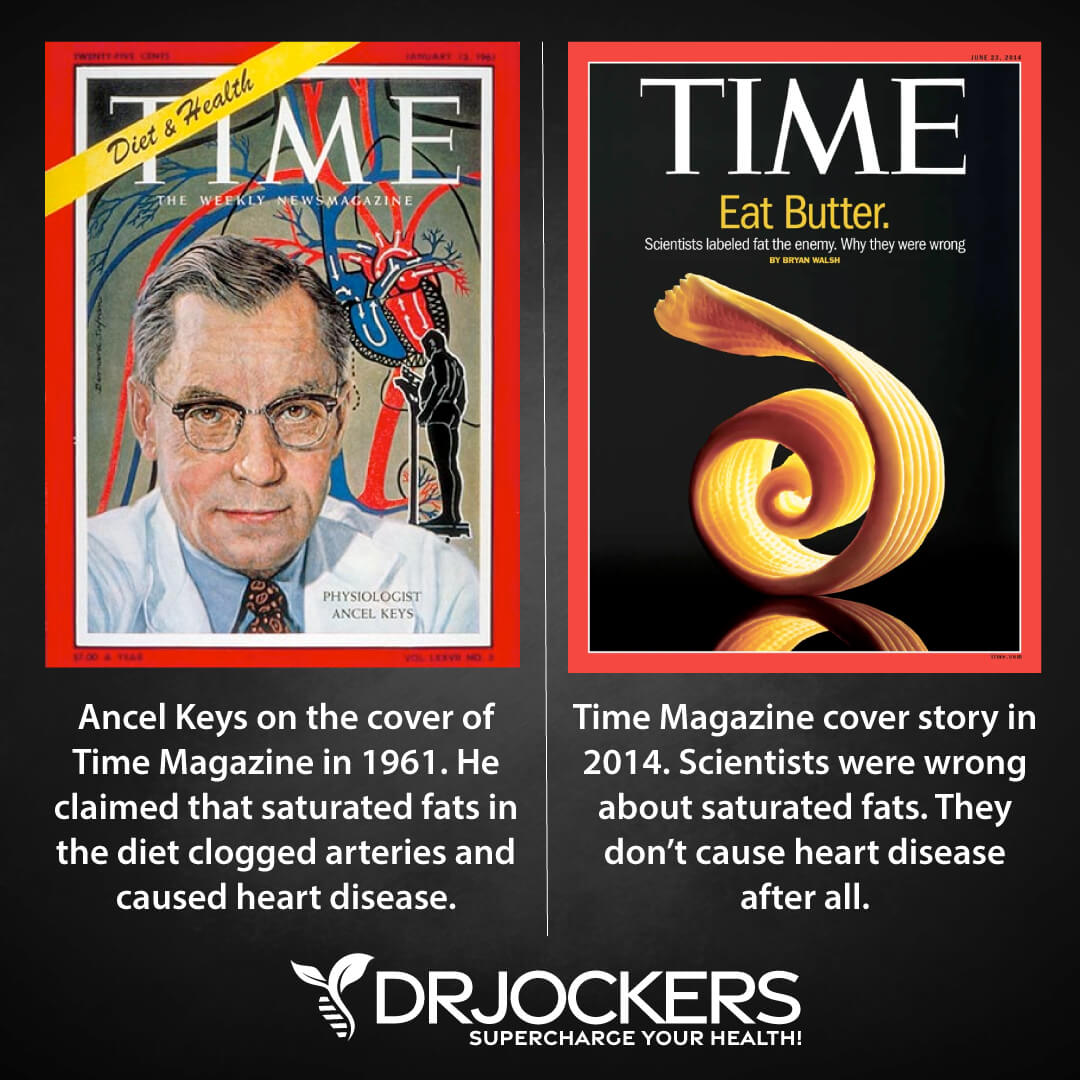
Why Health Myths Persist
Before I get into the top 5 common health myths, I want to touch on why health myths persist. There are several reasons for this.
For one, old paradigms take a long time to die. Health professionals get taught in a certain way. They are only given one “truth” about health. Often they are given the same old truth for decades or even longer based on old research.
Sure, studies constantly come up to question conventional wisdom. Many of these studies don’t get highly publicized. Often there is not enough money to explore the issue deeply. Even more often, research simply takes time. Often a whole generation of researchers are invested into these new ideas. They often pass away before these new ideas are embraced. It takes several generations for a new idea to become solid, evidence-based, and commonly accepted knowledge.
Another issue we have is how research is done. Research, of course, costs money. Who has money? Big pharmaceutical companies and big food companies. I’m talking about those companies that make ultra-processed foods that can damage your health — and companies that make medication to try to manage the chronic health issues that are partially linked to an ultra-processed diet.
Unfortunately, because these companies have money, they fund a lot of the research. The research they are interested in will get funded. The research they have no interest in, such as herbal or other natural medicine, takes a back seat. Funding the research, they are interested in will feed into the persisting health myths.
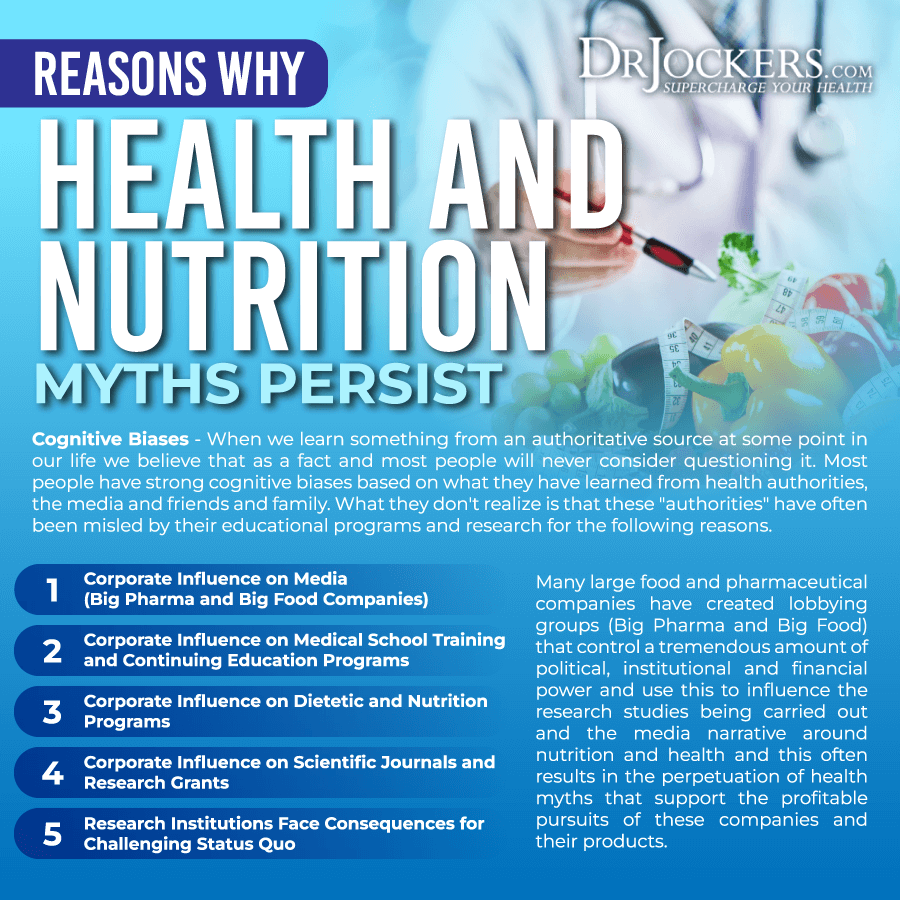
Of course, these health myths will only help them sell more drugs, such as cholesterol-lowering medication, and more ultra-processed foods, which will lead to more health issues and more medication. It’s a vicious cycle.
Lastly, we have an issue related to education too. If you’ve been reading my articles or following other topics in functional medicine and holistic health, you know that nutrition and lifestyle choices can make a huge difference in your life.
The sad truth is that conventionally-trained medical doctors and nurses are not really educated in nutrition. At most, they take one or two classes in nutrition, but sometimes none at all. They are even less educated about the power of lifestyle choices or the issue of environmental toxins. If your doctor is not educated in something, it’s not their fault they can’t help you. I want to believe that most doctors have their hearts in the right place, but they are simply not trained in how to help to support your body in healing itself.
While modern medicine may be great at dealing with acute injuries, such as broken bones, and offers life-saving surgeries in many cases, they are not doing a great job at dealing with chronic diseases. And this has to do with all these underlying issues behind health myths and the lack of education in holistic, natural, and functional medicine solutions.
Let’s get into the 5 most common health myths your doctor (unintentionally) lied to you about:
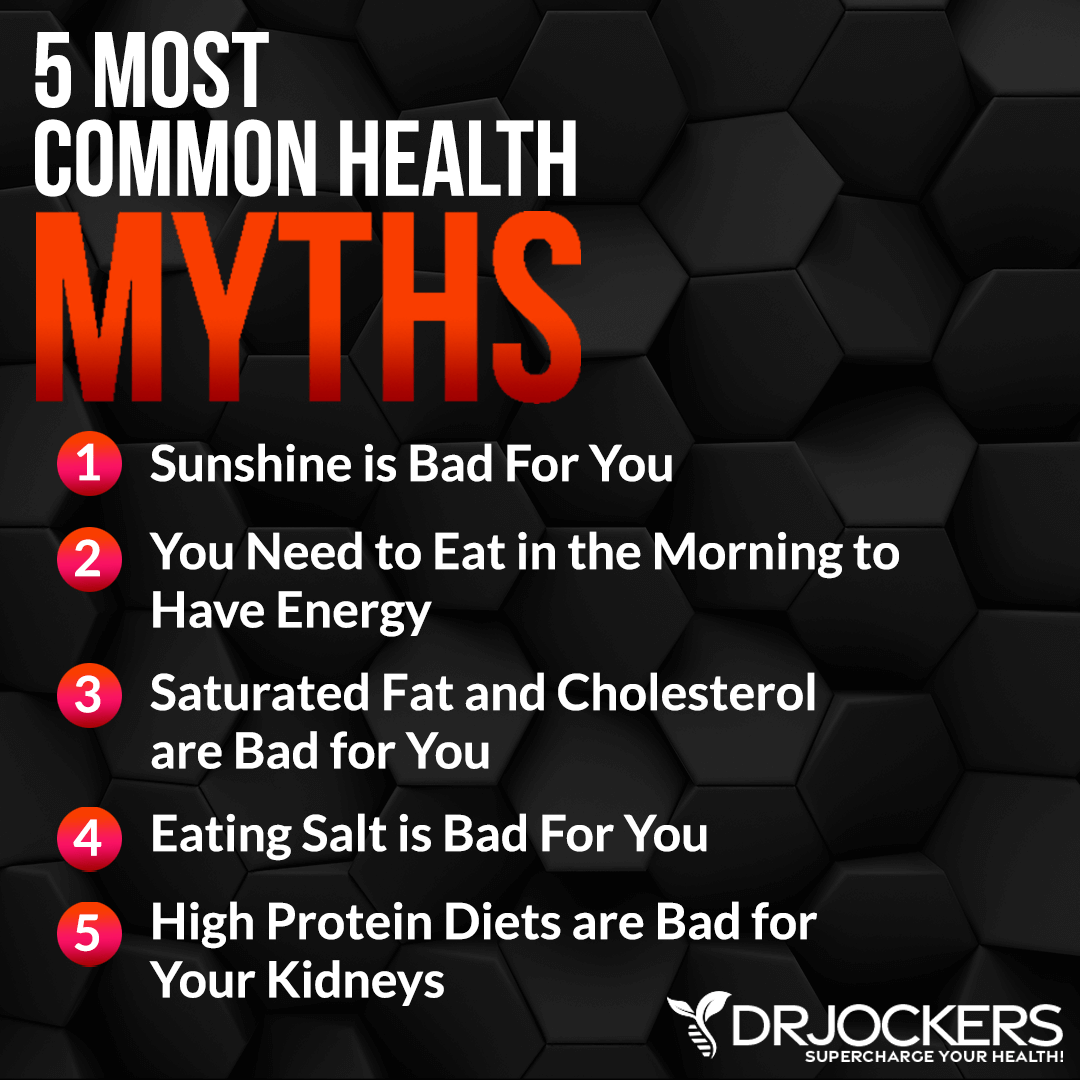
1st Health Myth: Sunshine is Bad for You
Somehow over the past decades, the world decided that sunshine was dangerous. This couldn’t be further from the truth. Sunlight has an incredible impact on the way your body functions. Sunshine helps your body to create vitamin D3, which is incredibly important for your brain health, cognitive function, and memory. For example, according to a 2018 review published in Cureus, vitamin D is essential for brain health and may reduce the risk of dementia (1).
Vitamin D3 may help to increase protective antioxidant levels, support hormonal health, boost your immune system, and support neurological circuitry. According to a 2021 study published in Frontiers in Endocrinology, vitamin D is essential for hormonal health and fertility in women (2). According to a 2020 research published in Nutrients, vitamin D may support immune function and may reduce the risk and support recovery from respiratory infections (3).
Besides vitamin D levels, though, sunshine has many other benefits. Red light and ultraviolet (UV) rays may offer antimicrobial effects. According to a 2020 article published in PLoS One, ultraviolet light may reduce viral and bacterial activity, which may be helpful in respiratory infections (4).
Sunshine may also support melatonin production and mitochondrial function. Most of the melatonin in your body is produced inside your mitochondria. Only a very small percentage is made in your pineal gland. Near-infrared rays from the sun support melatonin production in your mitochondria.
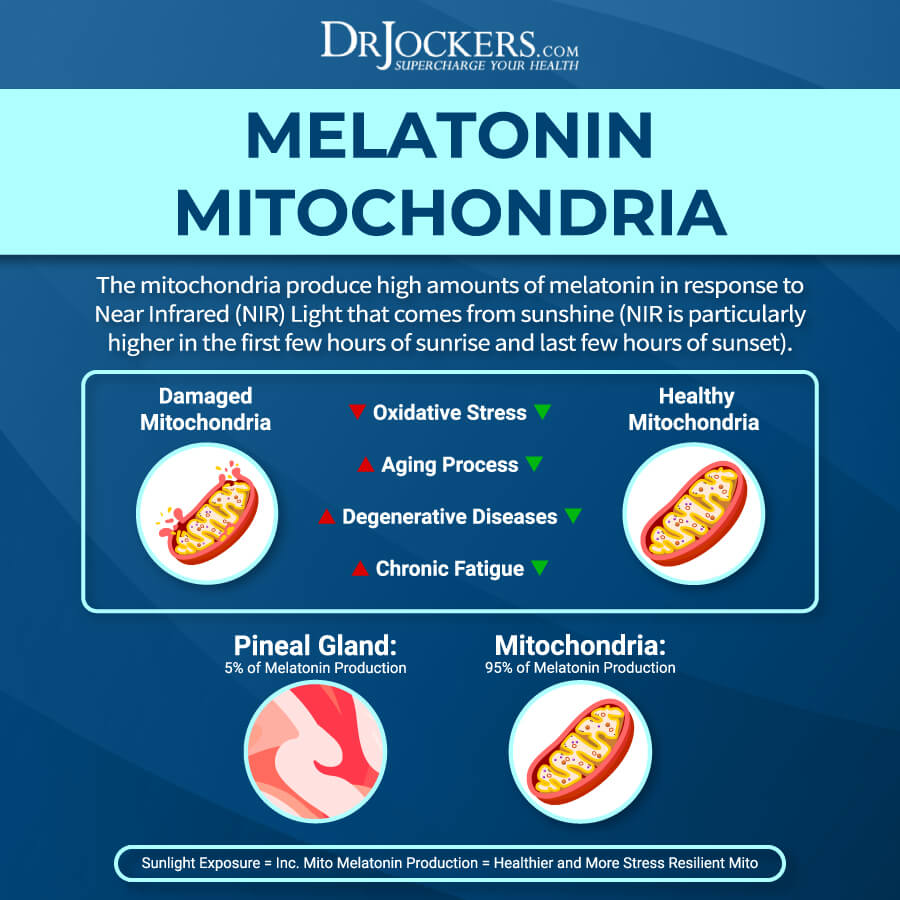
According to a 2020 review published in Physiology, melatonin production in the mitochondria may help to reduce oxidative stress and other health dangers, including the risk of cancer (5). According to a 2021 systematic review and meta-analysis published in Brain, Behavior, and Immunity, melatonin has anti-inflammatory benefits (6).
According to a 2021 review published in Antioxidants (Basel), melatonin may help to reduce the risk of neurodegenerative disorders (7). A 2022 research published in Biochemical Pharmacology has also found that melatonin may help to improve cognitive function (8). A 2018 review published in Advances in Experimental Medicine and Biology has found that melatonin may help to improve chronic pain and pain related to sleep disorders (9).
A 2018 review published in Life Sciences explained how melatonin might offer organ and blood vessel protection by affecting the NO/NOS system (10). According to a 2018 study published in Biomedical Research International, melatonin may help to improve gut microbiome health (11).
Improving your vitamin D levels without much sunshine, through supplementation, is possible. However, improving the melatonin production in your mitochondria through supplementation also is not possible. This makes sunshine, or when sunshine is not available in colder, dark months, through near-infrared light from infrared light therapy critical.
If you want to protect your skin from sunburn and sun damage, I recommend this all-natural sunscreen you can make at home. You may also find organic, natural sunscreen made with zinc oxide at natural health stores and online. Avoiding the mid-day sun or wearing protective clothing at that time may be smart, especially if you have sensitive skin. But there is no reason to avoid sunshine. It’s good for your health.
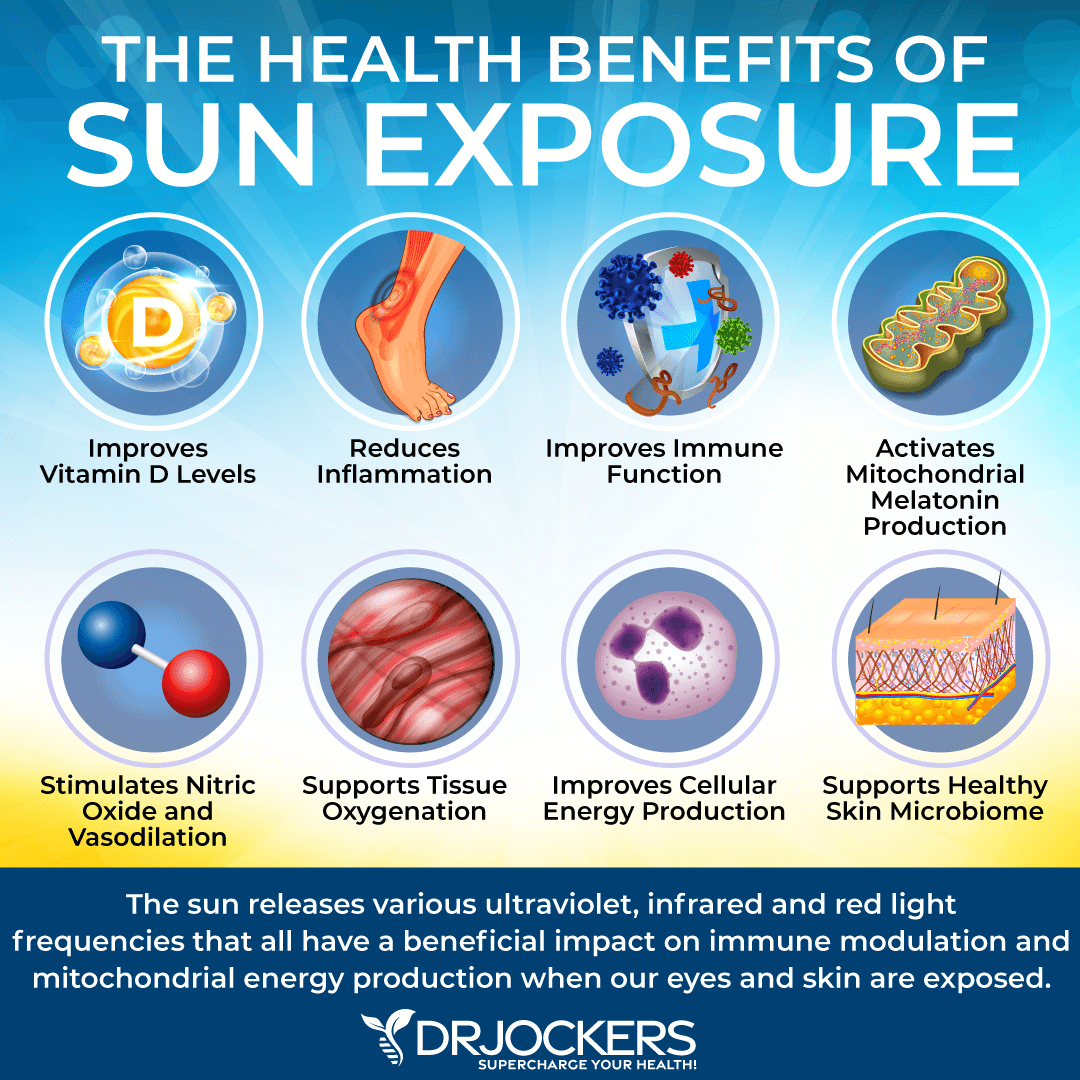
2nd Health Myth: Breakfast is the Most Important Meal of the Day
Breakfast is the most important meal of the day. How many times have you heard this saying? We have heard this so often growing up and also from friends and even health professionals, we started to believe it’s true. Many even claim that breakfast is not only the most important, but it needs to be a large meal.
You already know what I’m about to say. This is a myth. It’s an old idea that you need to eat breakfast to have any energy. Now we know that time-restricted feeding is so good for the body and how compressing your eating window to 6 to 10 hours offers tremendous health benefits. You can have plenty of energy by just hydrating your body well early in the day and the body can run for quite a while on your own body fat.
Intermittent fasting or time-restricted feeding has so many health benefits. According to a 2006 study published in Biochimica et Biophysica Acta (BBA) — Bioenergetics, it may help to reduce mitochondrial oxidative stress (12). A 2018 study published in PLoS One has found that intermittent fasting may prevent aging-like changes in the mitochondria and may support mitochondrial health (13).
According to a 2018 study published in Clinical Nutrition ESPEN, intermittent fasting may help to improve lipid profile (14). According to a 2018 study published in the Journal of the American Society of Hypertension, time-restricted feeding may help to improve blood pressure and support heart health (15).
A 2022 review published in the International Journal of Endocrinology has found that intermittent fasting may help to improve insulin sensitivity and blood glucose levels (16). A 2014 study published in the International Journal of Health Science (Qassim) has found that intermittent fasting may help to reduce inflammation and decrease the risk of chronic diseases (17).
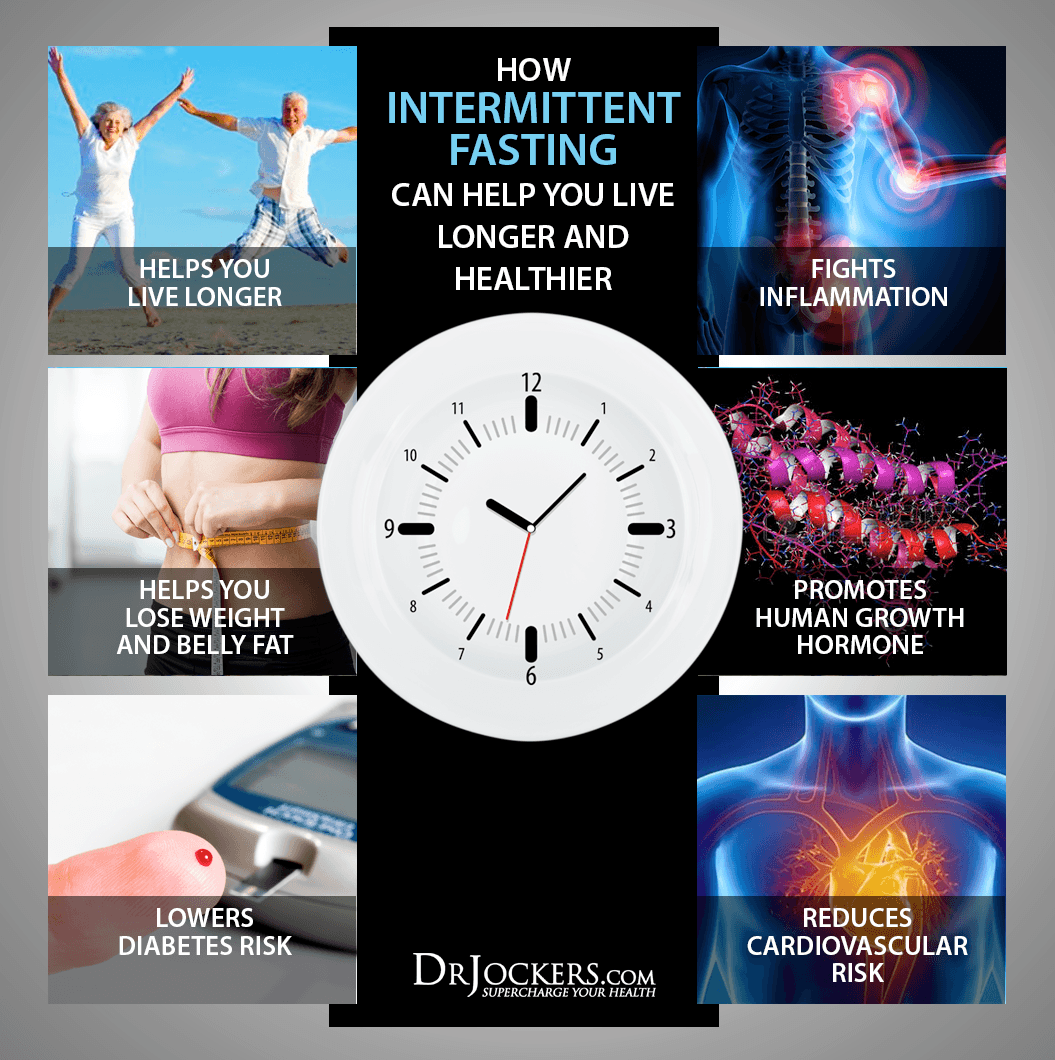
Blood Sugar Stabilizing Breakfast Ideas
I want to emphasize that there is nothing wrong with eating breakfast as long as you compress your eating window later in the day. While most people who practice intermittent fasting prefer to skip or delay breakfast and eat an early dinner, not everyone practices this method.
Depending on your work schedule, eating breakfast and eating your meals early may work better for you. You may just like breakfast food or enjoy having breakfast with your family. As long as you are compressing your eating window, you are fine.
Additionally, most people are making terrible food choices that are high in processed carbs early in the day that stimulate blood sugar imbalances and cravings throughout the day. This will cause more snacking and more cravings for highly processed convenience foods that drive up inflammation throughout your body.
If you choose to eat in the morning, aim to get roughly 30-40 grams of protein and 20-40 grams of healthy fats from things like pasture-raised eggs, grass-fed beef, poultry, fish, etc. so you will have blood sugar stability and be able to burn fat throughout the day. In the infographic below, you will find some helpful breakfast ideas.
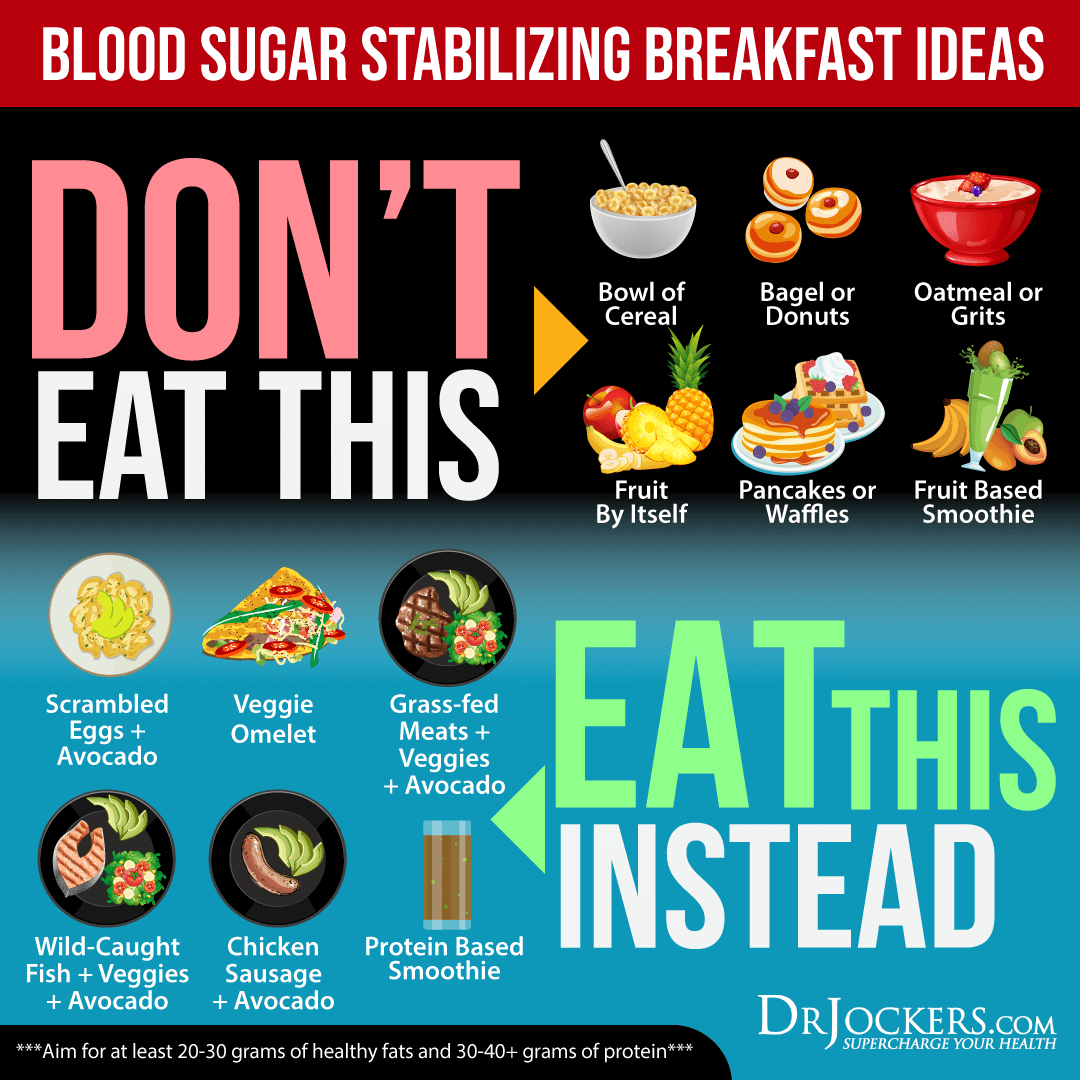
3rd Health Myth: Saturated Fat and Cholesterol are Bad for You
Another major health myth is that saturated fat and cholesterol are bad for your health. This myth dates back to the 1950s and the theory of Ancel Keys, who believed that there is a correlation between saturated fat, cholesterol, and coronary heart disease (18). Since then, plenty of studies have shown that this is not the case, but the myth still exists within medical circles. I’ve written about this great cholesterol myth here.
According to the work of Dr. Mary Enig, PhD, an expert in lipid biochemistry with extensive research on the role of saturated fat and cholesterol, cholesterol and saturated fat in our diet may actually have positive benefits (19). Saturated fatty acids and cholesterol make up about 50 percent of your cell membranes.
They are critical for cell membrane health, stiffness, and integrity. They play a vital role in your skeletal structure and health.
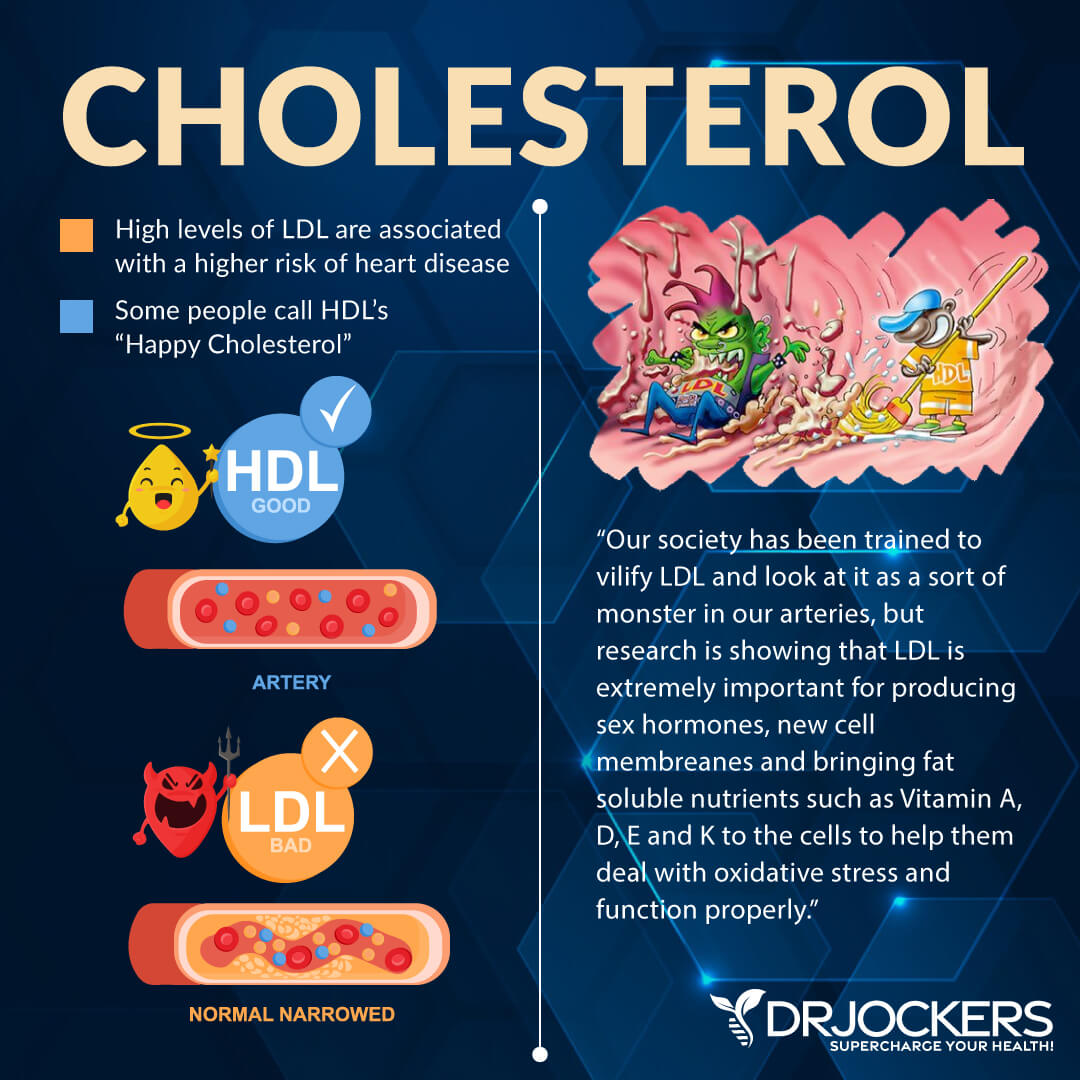
Why Saturated Fat and Cholesterol are So Important
Cholesterol is a precursor to vitamin D and major hormones that regulate stress, energy, and sex hormones. Cholesterol supports immune health. It may offer antimicrobial benefits.
It may help the repair and maintenance of the intestinal wall reducing the risk of intestinal disorder. It may also support bile production and the metabolization of dietary fats. It may offer antioxidant prevention, reducing the risk of many diseases.
It may help to lower Lp(a) levels, which is a substance in the blood that indicates your proneness to heart disease. It fuels the heart, specifically the muscles around the heart. It may also help the proper use of essential fats. Elongated omega-3 fatty acids are better retained in the tissues when the diet is rich in saturated fats.
Lastly, it may support your brain and nervous system development. Cholesterol is extraordinarily important for babies and children as they develop their brains and nervous system.
Over half of the brain is composed of saturated fats and cholesterol. Interestingly, one of the richest sources of cholesterol is mother’s milk, which also contains a special enzyme that helps the baby metabolize and use this nutrient.
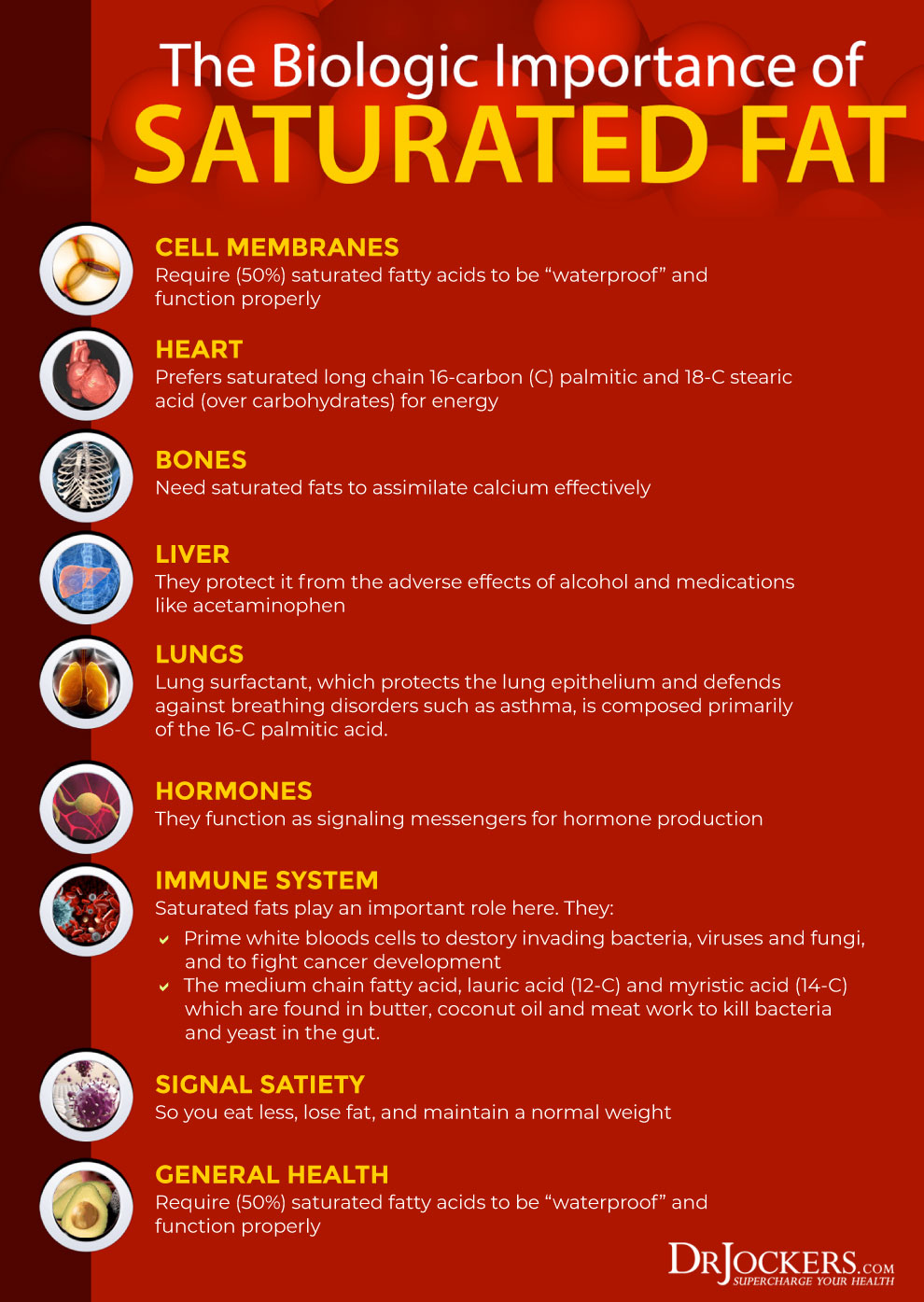
The Real Problem is Oxidation and Inflammation
So what is the confusion here? The problem is actually oxidative stress and inflammation leading to oxidized cholesterol and endothelial dysfunction. A 2022 review published in Frontiers in Cardiovascular Medicine has found that oxidized cholesterol may lead to endothelial dysfunction and may increase the risk of atherosclerosis (20).
According to a 2001 research published in Circulation, oxidative stress, inflammation, and endothelial dysfunction may increase the risk of heart disease (21). According to a 2016 study published in Cardiovascular Diabetology, oxidative stress, inflammation, and endothelial dysfunction may increase the risk of type 2 diabetes (22).
The main culprits behind cholesterol oxidation, inflammation, endothelial dysfunction, and related issues are sugar, trans fats, high omega-6 intake, insulin resistance, toxin exposure and chronic infections. The problem is not with saturated fat and cholesterol in the diet (23, 24).
The way to improve your health issues is by following a healthy, nutrient-dense, low-carb diet high in greens, vegetables, sprouts, herbs, spices, nuts, and seed, grass-fed beef, pasture-raised poultry and eggs, grass-fed butter and ghee, wild-caught fish, and wild-game. Improving insulin resistance, addressing underlying chronic infections, and addressing inflammation is key.
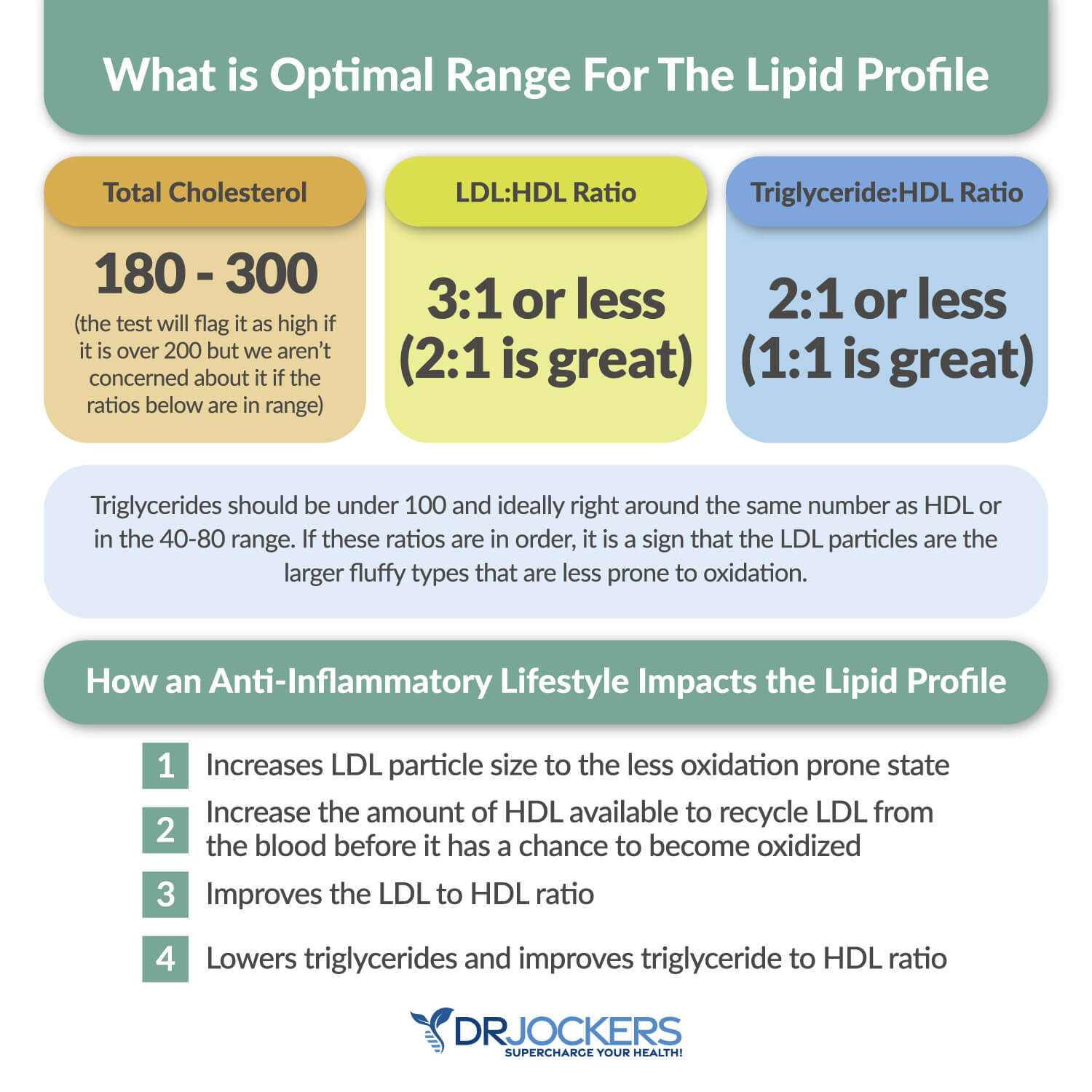
4th Health Myth: Eating Salt is Bad for You
Another common health myth is eating salt is bad for you. The problem is usually not salt, but consuming an overly processed food diet high in sodium.
These overly processed foods can promote inflammation and increase various health issues. Adding some healthy salt, such as a high quality sea salt, Himalayan Pink Salt or Celtic Salt, to your organic, nutrient-dense meals is not a problem, even beneficial.
These salts are high in minerals. According to a 2010 study published in Sensory Studies, Himalayan salt contains more minerals than regular table salt (25). It contains more potassium, magnesium, iron, and calcium. They may support energy production, blood sugar health, immune health, respiratory health, bone strength, sleep, libido, muscle health, heart rate, blood pressure, and mood. I discussed these benefits in this article.
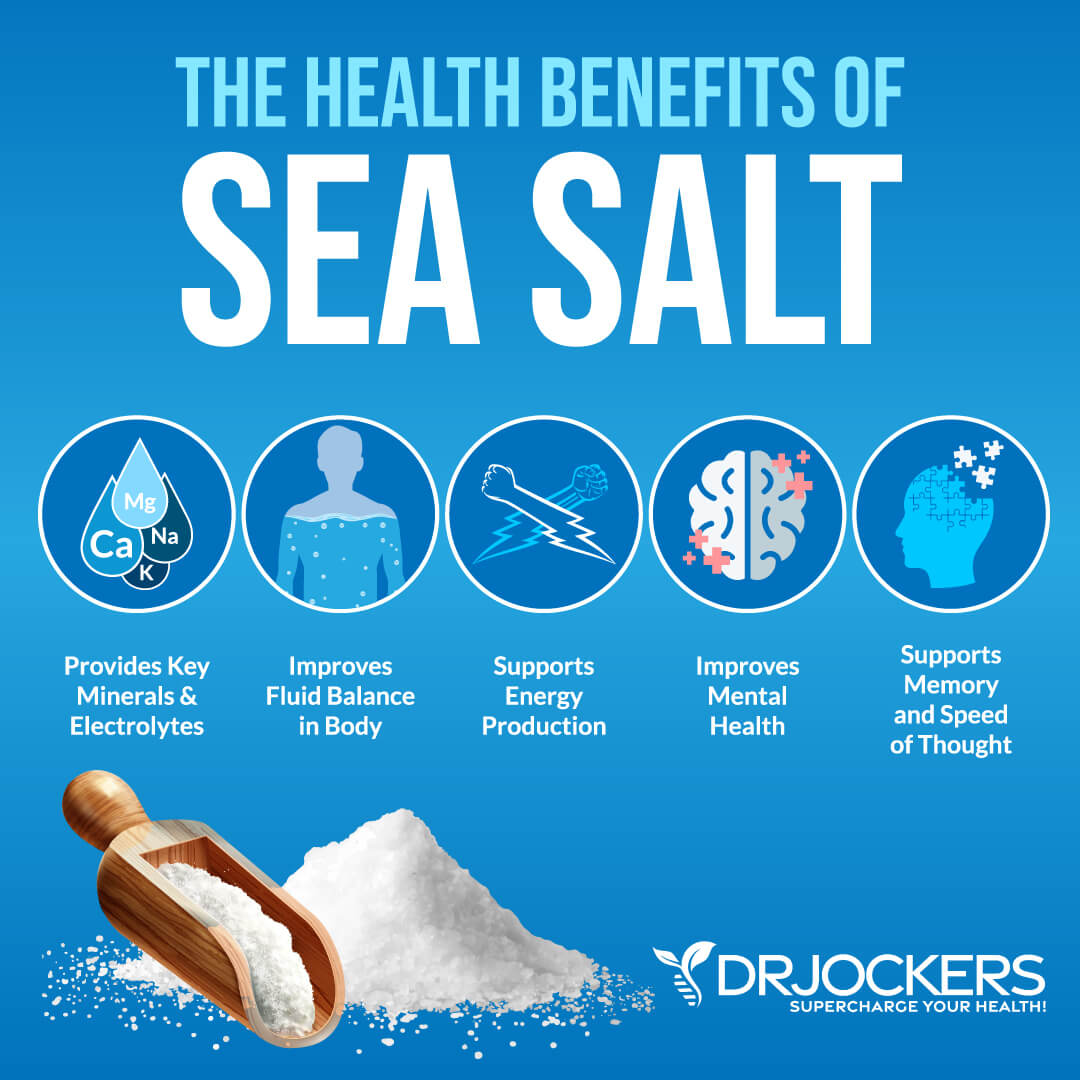
Studies Around Salt Intake and Overall Health
To many people’s surprise, there is quite a bit of research indicating that salt intake can have great health benefits and is not a big risk factor for chronic disease development. According to a 2017 study published in Pediatric Pulmonary and a 2014 review published in, it may be beneficial for your lung health (26, 27).
A 2014 Vanderbilt study found that the recommended low salt intake (less than 1.5 grams per day) was associated with a significantly greater risk of heart disease. Higher ranges of sodium intake (3-6 grams daily) were associated with the lowest odds of a heart attack (28).
The study authors believe that sodium had this effect because it is a potent anti-microbial that prevents infection. Chronic infections are a major risk factor for the development of heart disease.
Looking at these benefits, you can see now how low-salt diets can be problematic. According to a 1983 study published in The Journal of Clinical Endocrinology and Metabolism, a low-salt diet may disrupt sleep and increase sleep issues (29).
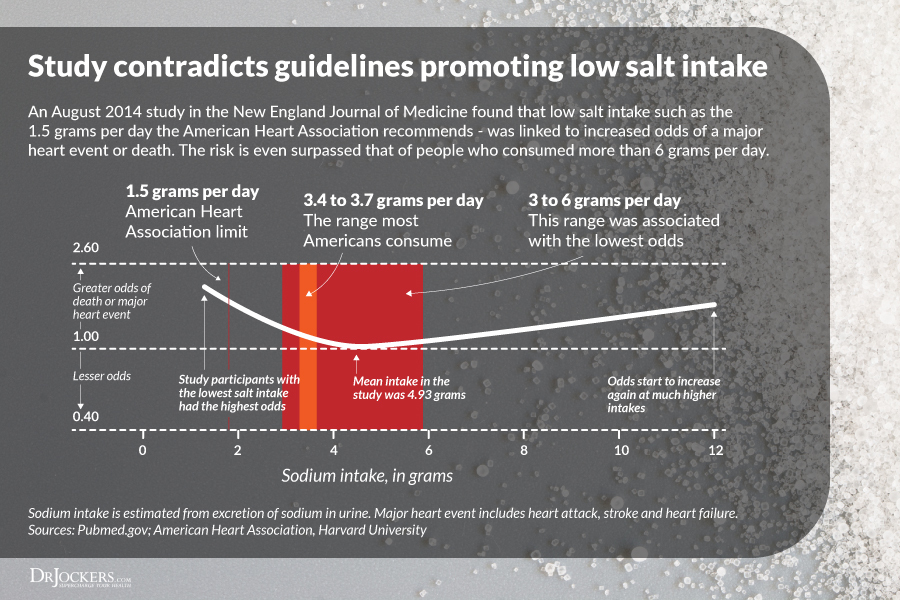
Salt Intake and Insulin Resistance
According to a 2011 study published in Metabolism, a low-salt diet may increase insulin resistance (30). According to a 2011 study published in the American Journal of Hypertension, an extremely low-salt diet may increase the risk of cardiovascular disease and death in patients with heart failure (31).
Furthermore, people who are insulin resistant, tend to retain sodium. According to a 2011 review published in Regulatory, Comparative, and Compulsory Physiology, sodium-retaining is common in diabetes, which may increase the risk of high blood pressure, obesity, metabolic syndrome, edema, and other health issues (32).
But when you reduce carbs and follow a blood sugar-stabilizing diet, you reduce insulin, excrete sodium, and need more healthy salts in your diet. You can learn more about how to stabilize your blood sugar by reading this article.
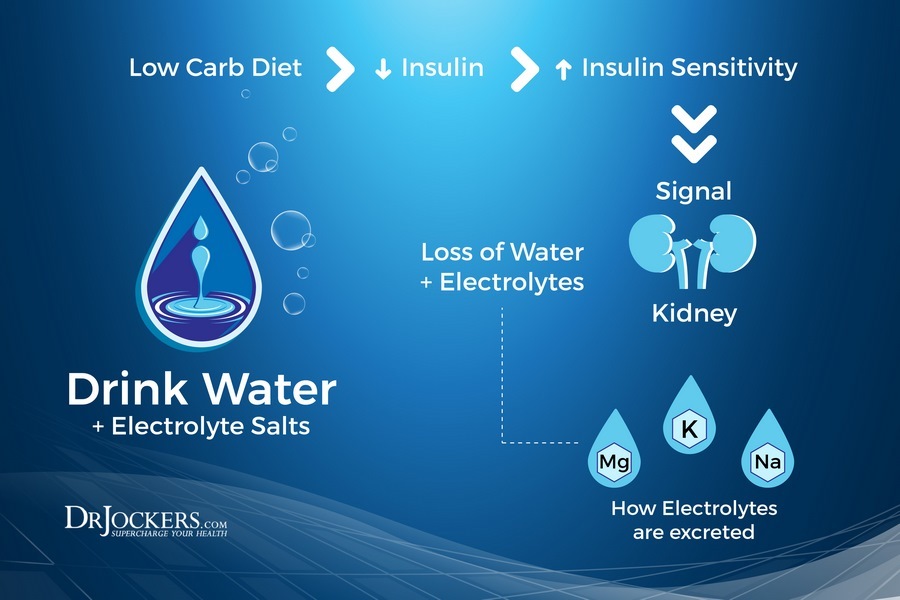
The Problem with Typical Table Salt
As I discussed in this article, the kind of salt matters too. Typical table salt is composed of 97.5 percent sodium chloride and 2.5 percent chemicals such as anti-flow and anti-caking agents. Table salt is bleached and processed with excessive heat that alters the natural chemical structure and destroys essential trace minerals.
Hazardous molecules such as iodine and fluoride are added along with toxic substances like aluminum hydroxide(used as an anti-moisture additive). This process takes out the benefits of salt. Instead, I recommend using a good quality sea salt. Some of my favorites include Redmond’s Real Salt, Himalayan Pink Salt or Celtic Salt.
These salts are lower in sodium but are full of important minerals to support your health. Additionally, also avoid eating processed foods, which are full of sodium but devoid of key trace minerals that help the body produce energy and balance electrolytes.
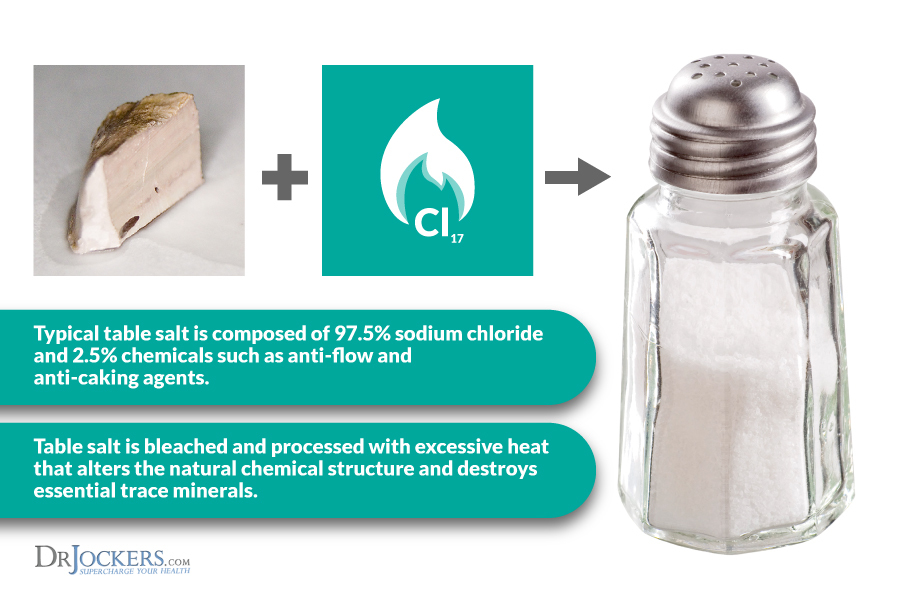
5th Health Myth: High-Protein Diet is Bad for Your Kidneys
The last common health myth is that a high-protein diet is bad for your kidneys. The truth is that there is no research demonstrating that people with normal kidney function have to worry about a high-protein diet.
High protein diets may not be right for you if you have seriously compromised kidney health. According to a 1996 study published in the American Journal of Kidney Disease, a high-protein diet may increase the progression of advanced kidney disease (33).
According to a 2020 study published in the Journal of the American Society of Nephrology, high-protein diets may increase worsened renal function in people with kidney dysfunction although we really need more research to be conclusive on this idea (34).
However, there is no research evidence suggesting that the same goes for people with healthy kidneys. In fact, quite the opposite. According to a 2016 study published in the Journal of Nutrition and Metabolism, a high-protein diet had no harmful effects on resistant-trained healthy men (35).
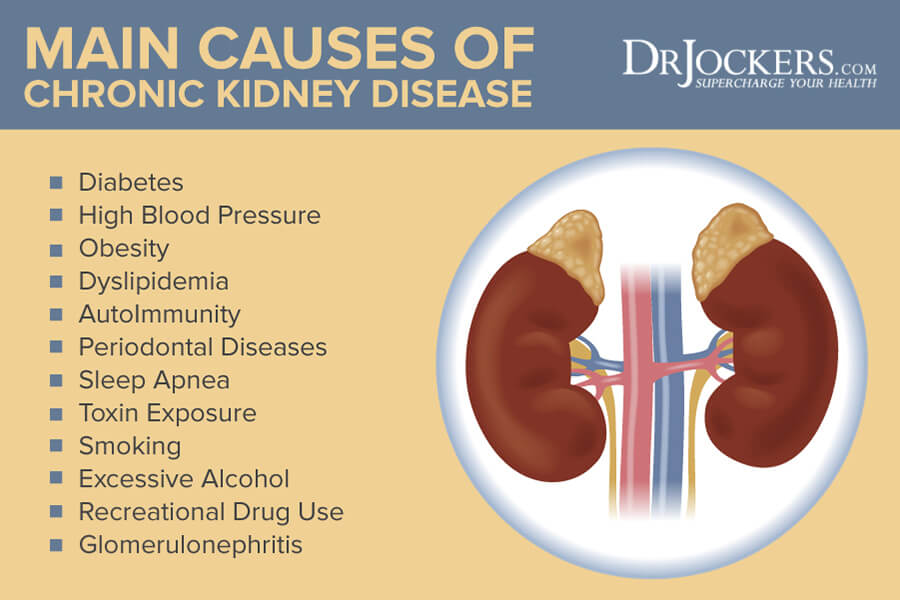
High Blood Sugar is a Major Problem for Kidney Health
Moreover, a high blood sugar diet and diabetes can damage kidney function. Eating a high-protein diet has been shown to stabilize blood sugar and improve insulin sensitivity.
According to a 2003 study published in the American Journal of Clinical Nutrition, increasing protein in one’s diet may help to improve blood glucose response in people with type 2 diabetes (36). A 2004 study published in Diabetes has also found that a high-protein, low-carb diet may help to reduce blood sugar in those with type 2 diabetes (37).
Following a high-protein or moderate-protein low-carb diet may help to support your health. I recommend consuming healthy animal protein, including grass-fed beef, pasture-raised poultry, wild-caught fish and seafood, wild game, and protein powders. If you are unsure how much protein you should consume, I recommend reading this article.
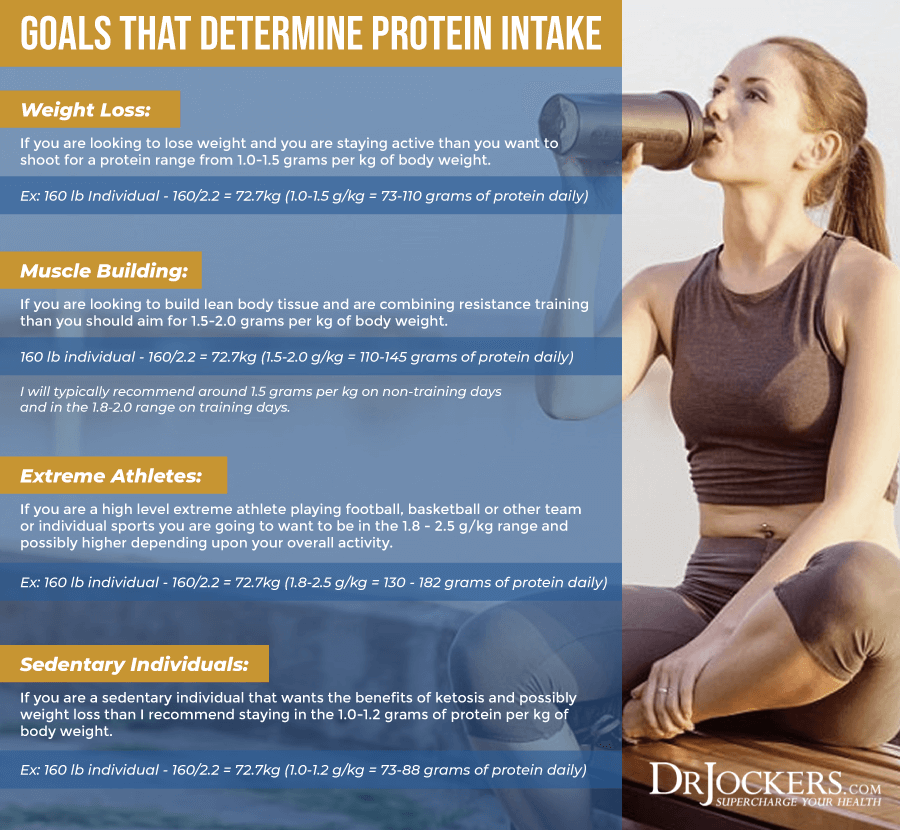
Final Thoughts
There are so many health myths out there. Some are spread by word-of-mouth among regular people. But there are also many healthy myths that even many conventionally trained doctors and health professionals believe, and, even worse, recommend.
Debunking these health myths is critical for a paradigm shift, improving our health, and creating a healthier world. I hope that reading about these common health myths and debunking them was eye-opening. Follow the recommendations in this article to improve your health.
If you want to work with a functional health coach, I recommend this article with tips on how to find a great coach. Our website offers long-distance functional health coaching programs with our world-class team of health coaches. For further support with your health and other goals, just reach out—our fantastic coaches are here to support your journey.
Inflammation Crushing Ebundle
The Inflammation Crushing Ebundle is designed to help you improve your brain, liver, immune system and discover the healing strategies, foods and recipes to burn fat, reduce inflammation and Thrive in Life!
As a doctor of natural medicine, I have spent the past 20 years studying the best healing strategies and worked with hundreds of coaching clients, helping them overcome chronic health conditions and optimize their overall health.
In our Inflammation Crushing Ebundle, I have put together my very best strategies to reduce inflammation and optimize your healing potential. Take a look at what you will get inside these valuable guides below!




Interesting article. I have noticed a lot of docs on line that contradict one another on a lot of health information. In this article you state many of your comments as “it MAY” opposed to saying that it is a FACT. This leads me to think that what you are stating may or may not be true, but who knows for sure? 🤷♀️. Thank you for all you do. I am just seeking truth in regards to my health so that I can have good dialog with my health providers.
Yes we try to avoid making definitive statements to comply with FDA/FTC guidelines when it comes to natural health strategies.
Thanks Dr. Jockers for laying out the truth so clearly. In a politically & legally (thus “may”) correct way.
Our body is complex. Staying healthy doesn’t have to be complicated.
We don’t take any regular drug. Our 20-yo hasn’t taken any antibiotics yet, a species in extinction. In short:
1) Take responsibility over health. Nobody knows or cares more about our health than ourselves. Relying exclusively on doctors & drugs is irresponsibility.
2) Invest in health. Our souls lives in our bodies, so let’s take care of it. Don’t use it like a car without maintenance until it stops.
3) Be conscious & selective about information sources. As Dr. Jockers pointed out, money controls media, research, publications, institutions, doctor’s education, politicians, laws, etc. The resultant system doesn’t have our health as priority.
Cheers.
Completely agree with all of this and really appreciate the info you put out there, thank you! We eat a high protein animal-based paleo diet, we get sunshine all the time (especially sunrise and D time later), we eat good animal fats (bone broth on the simmer right now and tallow always next to the stove!) and consume Sole and loads of mineral salt in the day.
Sadly most of our clients (ASD kids) don’t live this way, most are actually vego which is really sad.
My Lp(a) is “very high” at 177 according to my doctor. (In the past year it was also 128 and 172– I didn’t do anything much different for it to be 128). My diet is largely whole-food and organic when possible for 10+ yrs. My diet is only getting better and has included some raw milk for years. I eat fat on meat so i’m not lean protein. I eat salmon. I use lard and olive oil. 3 eggs+ a day. I have an animal-based diet. Grass-fed, pastured animals, non-GMO. Low sugar. Very low junk food. I was surprised to read saturated fat lowers Lp(a) bec/my Lp(a) is very high. I am not concerned about high LDL at all but uncertain whether my Lp(a) is concerning. Do you think that I should be concerned?
I’ve been ramping up to Carnivore after my bloodwork and will go Carnivore on Jan 2 for at least 90 days. Should I expect my Lp(a) to get much better or no bec/it is genetically high cholesterol?